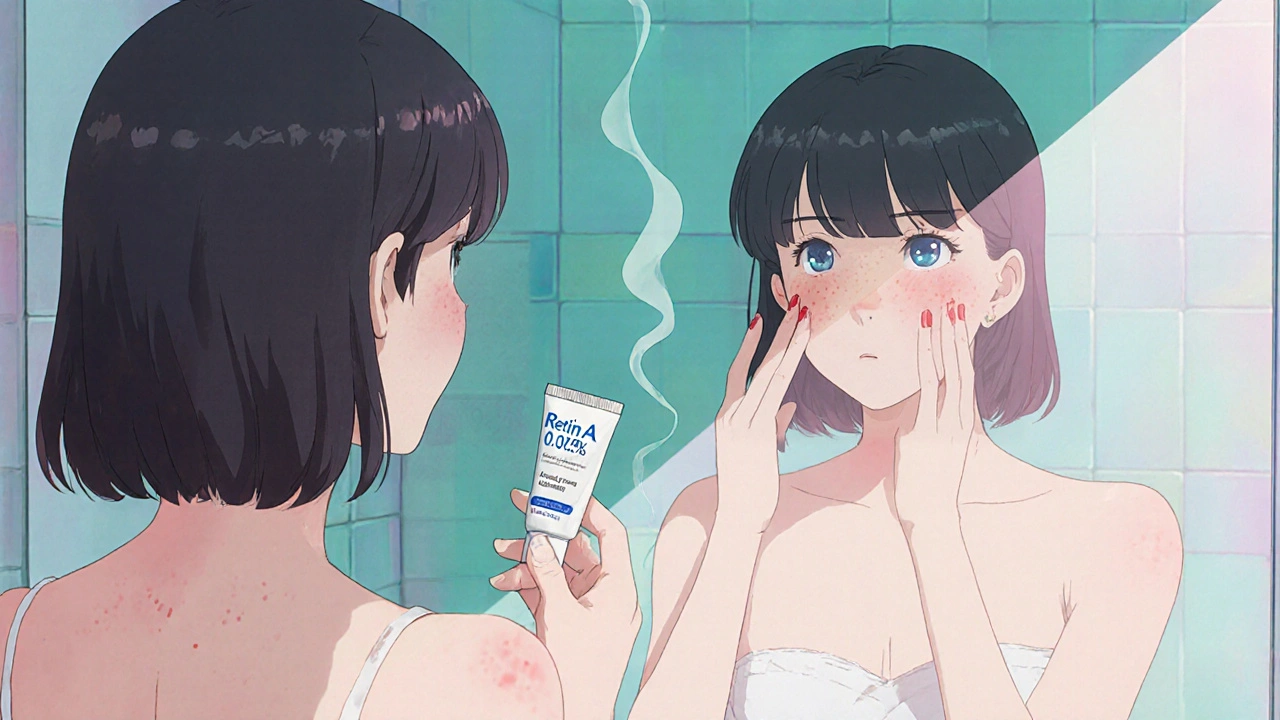Compare Retinoids: Find the Best One for Your Skin
When you hear retinoids, a family of vitamin A derivatives used to treat acne, aging, and uneven skin tone. Also known as vitamin A derivatives, they’re one of the most studied and trusted ingredients in skincare. But not all retinoids are the same. Some are over-the-counter, others need a prescription. Some work fast, others take months. And if you’ve ever burned, peeled, or irritated your skin after using one, you know picking the wrong type can hurt more than help.
There’s retinol, a gentle, widely available form often found in drugstore creams, and then there’s tretinoin, a prescription-strength retinoid that’s been the gold standard for decades. Then you’ve got adapalene, a newer option that’s less irritating and now available without a prescription in many places. Each has a different strength, speed, and side effect profile. Tretinoin works faster but can make your skin red and flaky. Retinol is milder but takes longer to show results. Adapalene sits in the middle—effective for acne without the burn. Even within these, formulations matter: gel vs cream, overnight vs morning use, combined with moisturizers or acids.
What works for someone else might not work for you. Your skin type, age, sensitivity, and goals all change the equation. If you’re chasing fine lines, you might need more potency. If you’re just starting out or have sensitive skin, you need patience and gentleness. And if you’re dealing with acne, some retinoids are better suited than others. The posts below break down real comparisons: how retinol stacks up against tretinoin, why adapalene is gaining popularity, what to expect when switching from one to another, and how to minimize irritation while still getting results. You’ll find honest takes on cost, effectiveness, and real user experiences—not marketing hype. No fluff. Just what you need to pick the right one for your skin.

Retin A 0.025% (Tretinoin) vs Other Retinoids: Comprehensive Comparison
A side‑by‑side look at Retin A 0.025% (tretinoin) versus popular retinoid alternatives, covering efficacy, side‑effects, usage tips, and how to pick the right one for your skin.
